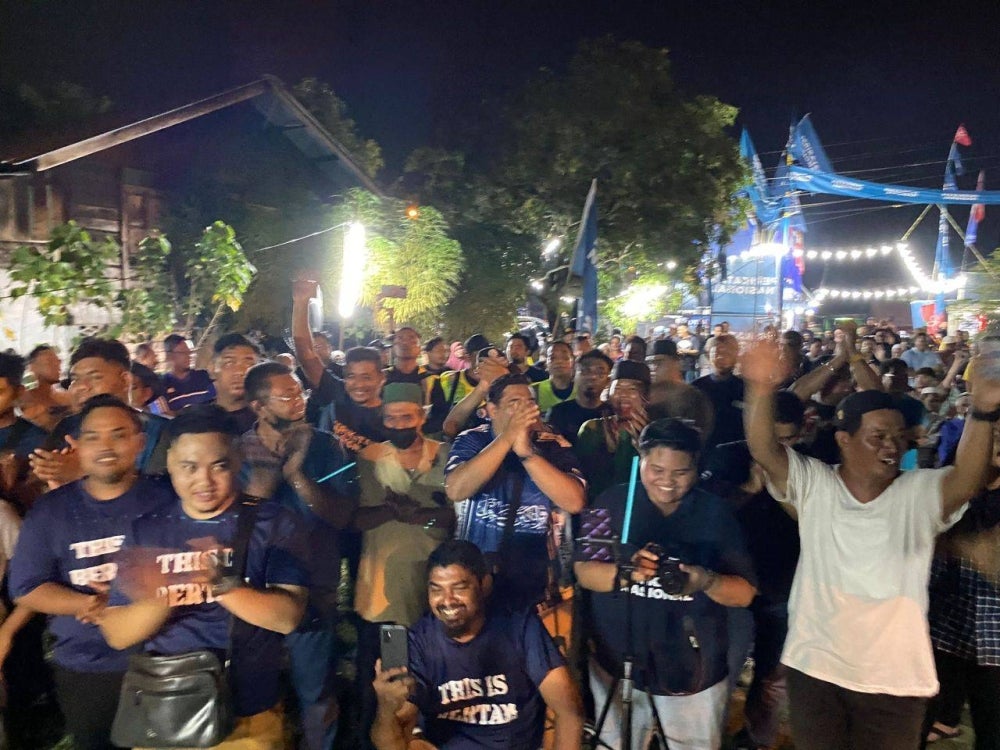PN's constructive campaign strategy could pay off - Analysts
NURUL ATIKAH SARJI KOUSALYA SELVAM
GEORGETOWN – As fierce campaigns continue between rival coalitions, analysts are questioning whether Penang will remain a guaranteed stronghold for Pakatan Harapan (PH).
Particularly in the Permatang Pauh state seats of Seberang Jaya, Penanti and Permatang Pasir, these once secure seats are now battlegrounds that draw significant attention after the 15th general election.
It was during this election that Prime Minister's daughter Nurul Izzah Anwar lost the Permatang Pauh parliamentary seat to Perikatan Nasional’s (PN) Muhammad Fawwaz Mat Jan.
This marked PH's inaugural lost of the Permatang Pauh seat since it was first contested in 1999.
Political analyst Dr Abdul Aziz Azizam was in the opinon that the opposition coalition would stand a chance of securing victory in the upcoming Penang state elections.
"Yes, the probability of PN taking over several seats is discernible, particularly in areas with a Malay majority.
"Their initial goal was to secure at least 11 seats," he commented.
He further stressed the importance of the party machinery and grassroots support in reaching voters.
Abdul Aziz also acknowledged that the intense 14-day campaign period had induced fatigue and weariness among campaign teams, potentially affecting momentum.
He said any decline in campaign vigour could offer PH-Umno coalition an opportunity to regain the voters' attention.
Meanwhile, senior fellow at the National Council of Professors, Dr Jeniri Amir pointed out that PN could potentially dominate the mainland seats, posing a challenge to PH.
"The Malay voters in the mainland, who tend to support Pas or Bersatu, make a significant challenge for PH to win their favour.
"This becomes even more challenging with BN's support," he said.
On PH voters' sentiments, Dr Jeniri anticipated higher voter turnout among non-Malay voters, highlighting their support for PH.
"The non-Malay voters - the Chinese and Indians, are expected to turn out in greater numbers than Malay voters.
"Their decision not to abstain from voting on Aug 12 indirectly will demonstrate their support for PN.
"It's crucial for them not to remain neutral; hence, voters should actively participate," he reasoned.
Former Seberang Jaya assemblyman from Barisan Nasional (BN), Datuk Arif Shah Omar Shah, shared his perspective on the approach taken by PN candidates.
Arif stressed that PN's constructive campaign strategy, avoiding confrontation and personal attacks, could greatly enhance their chances of winning the state elections.
"With the blessing of Allah, I foresee PN securing a strong victory and potentially forming a new government.
"However, it's important to avoid mistakes. Most voters have already made up their minds," he added.
While PH and DAP appear poised to secure a majority of seats on the island, PN might find an opportunity in Bayan Lepas, where Gerakan President Datuk Dominic Lau Hoe Chai is competing.
Lau's appeal to Penangites, his participation in local issues and his commitment to the community have garnered attention and could pose a challenge to incumbent Bayan Lepas assemblyman Azrul Mahathir.
In a surprising turn, Penang DAP deputy chairman P. Ramasamy announced his resignation from the party shortly after being dropped from the candidate list for the state election.
Analysts believe this move could influence voters' perception of the PH-Umno coalition.
Abdul Aziz noted that Ramasamy's timing could be interpreted as reflecting internal issues within the party, raising concerns about unity and leadership.
Political analyst Sivamurugan Pandian advised DAP to take swift damage control measures to prevent a significant protest vote, particularly among Indian voters.
Ramasamy's resignation, coupled with his support for independent candidates David Marshall and M Satees, could have an impact on the outcome, given his history as a three-term deputy chief minister.











